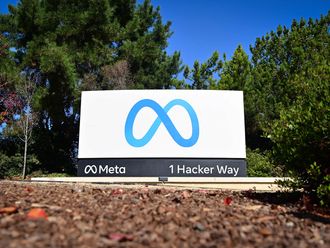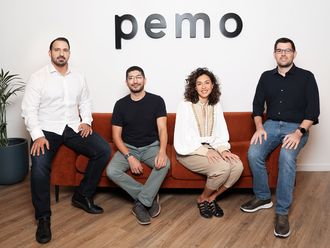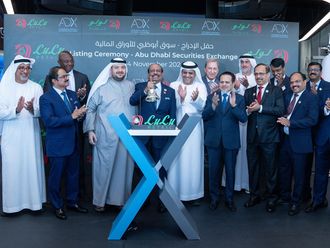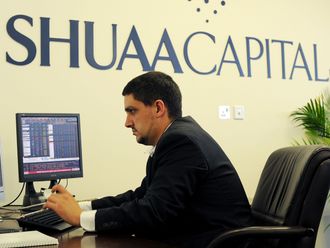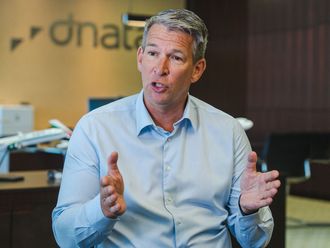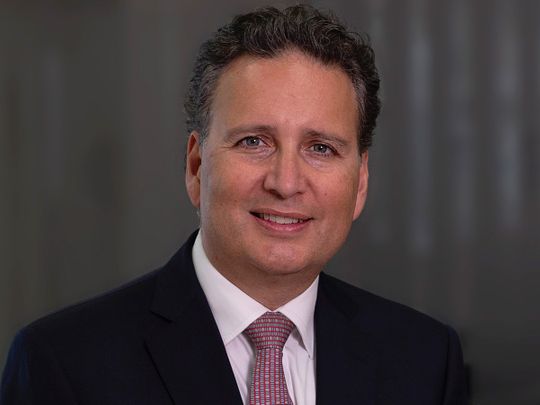
Dubai: UAE’s private equity market is set for a strong comeback with renewed deal flows and fund-raising activity.
The Abu Dhabi Securities Exchange (ADX) index is up over 60 per cent year-on-year and Dubai Financial Market (DFM) over 30 per cent. This is in sharp contrast to the MSCI Emerging Markets index, which is down over 20 per cent.
Recent IPOs have performed strongly with DEWA raising $6.1 billion from a roster of blue-chip global and local investors.
In addition, the increased daily volumes on ADX and DFM and strong investor appetite for new issues are expected to encourage private equity firms to consider local IPOs in the UAE as a future exit route. “Regional investors have appetite for new issues, especially in sectors that are not represented on ADX and DFM,” said Dr. Karim El Solh, CEO of Gulf Capital.
PE exits have been challenging in recent times, and most exits have been completed as trade sales.
“The IPO market is now fully open in the UAE, and it serves as a viable exit route for regional private equity firms,” he said.
End of dull phase
The UAE’s private market faced a prolonged slump during the past four years largely due to the slowdown in the global economy and geopolitical issues in the region. Although the UAE continues to remain the epicenter of PE deals in the region, the collapse of Abraaj Capital was a blow to overall investor confidence.
While the Covid crisis impacted economic activity, PE fund raising and deals remained sluggish as most regional players remained focused on growing their existing portfolio companies rather than new buy-outs.
As deal flows shrunk, the industry had substantial dry-powder (uninvested funds).With the overall risk appetite remaining weak during the past few years, local and international players have been focused on deal-based fund raising rather than resorting to blind pools.
Rising valuations
While valuations had risen considerably in 2021, the recent global stock market corrections will bring it back to more reasonable levels.
“There is far less competition in the GCC for private equity deals than in Europe or the US given the relatively small number of private equity firms in the region. So the valuations of new investments are still reasonable and appealing. We still see numerous growth investment opportunities at reasonable valuations in the region.”
Rising inflation is a cause for concern for private equity firms. This will impact the cost of raw materials and the cost of salaries across some portfolio companies could in turn impact their profit margins. However, El Solh said these situations are largely mitigated as managements are able to pass increased costs to their customers so the overall profitability is not impacted.
Rising funding costs
The cost of borrowing is going to increase in the GCC, in line with rising rates in the US. Companies that are heavily leveraged will suddenly face a sharp increase in interest expense which will impact their profitability.
“Fortunately, our portfolio companies have modest leverage across the board,” the official added.
The inflation outlook, too, has shifted dramatically in the wake of the pandemic and the war in Ukraine.
Strong GCC outlook
“Our regional economies are accelerating their growth, despite a weak global macro-environment,” he said.
“In light of the much improved economic outlook and the surging UAE stock markets, I expect global investors to allocate more capital to regional private equity firms.”
Gulf Capital eyes strong returns, fund launch
Abu Dhabi-based private equity firm Gulf Capital is a leading thematically driven private equity and growth capital investor, focusing on the “Sectors of the Future”. The company has been an active investor in technology and fintech, healthcare, healthtech, business services, consumer and sustainability.
The company manages the largest private equity fund in the region, the $750 million GC Equity Partners III fund. It is currently busy finishing the deployment of this fund in attractive regional opportunities and is looking forward to launching a new fund soon.


